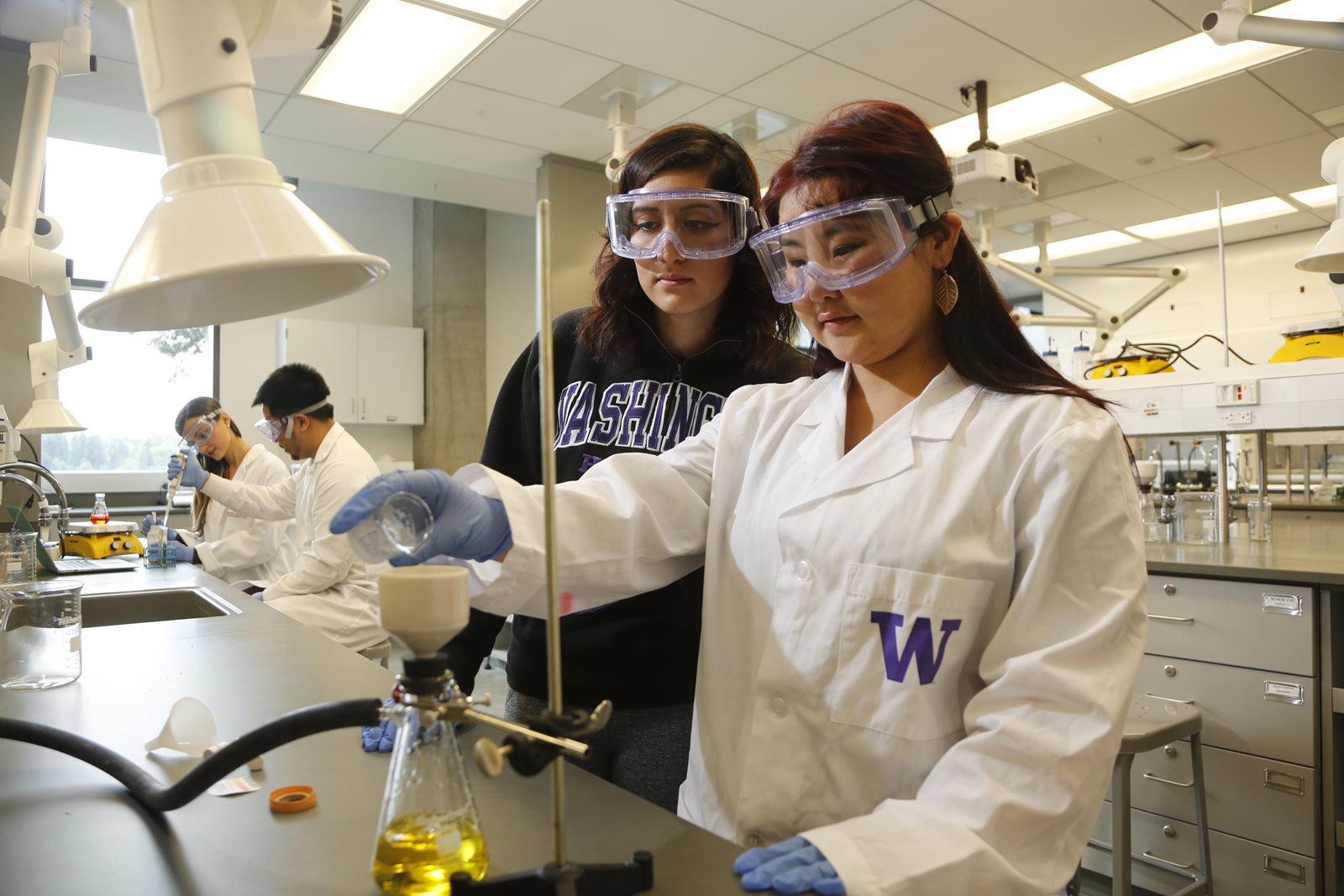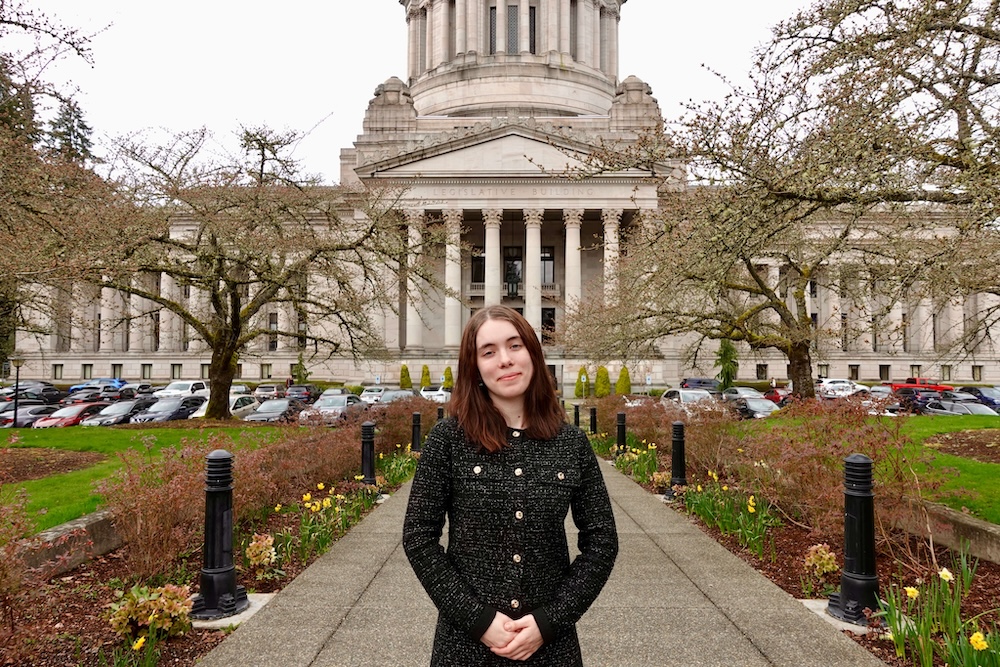
By Keiana Hadjireza
When you hear the words engineer, programmer or physicist, a woman might not be the first image that comes to mind. Nationally, women make up a small percentage of professionals in math-intensive fields. But, the University of Washington Bothell is changing the face of math, computer science and engineering one female at a time.
The School of Science, Technology, Engineering & Mathematics was created in 2013 to combine those fields. It expanded in 2014 with the opening of Discovery Hall, its home. Forty percent of the faculty is female. Forty percent of STEM students are from racially or ethnically diverse backgrounds; 35 percent are first generation; and 26 percent are female.
"We're better off if we have the complete pie" says STEM Dean Elaine Scott.
The school even has a class, “Women in STEM Seminar: College Life,” to provide a forum for students to discuss gender issues and give them tools to sustain their college and professional life.
Since being the first woman at Michigan State University to graduate with dual doctorates in agricultural and mechanical engineering in the early 90s, Scott has seen the disparity of women in STEM firsthand. Biology and health sciences have relatively equal male and female representation. Engineering and technology related programs lack the same balance.
"You can still keep your femininity even in a masculine field" says Nora El Zarif, a senior in electrical engineering, graduating in June.
Because of the male-dominated atmosphere, engineering seemed intimidating at first, says El Zarif. Now nearing the completion of the program, she is glad she chose the University of Washington Bothell because of many opportunities for research, club involvement and female peers and faculty.
"Be persistent and you will be surprised what you are capable of," said El Zarif, who also is treasurer of the UW Bothell chapter of the Institute of Electrical and Electronics Engineering.
El Zarif has already lined up a job after graduation at Honeywell. Companies are seeking more female representation to contribute to the overall problem-solving process.
"More perspectives lead to more solutions" says Scott.
The University has worked to steer more girls into science and technology by hosting an Inspire STEM Festival for middle school students the past three years.



